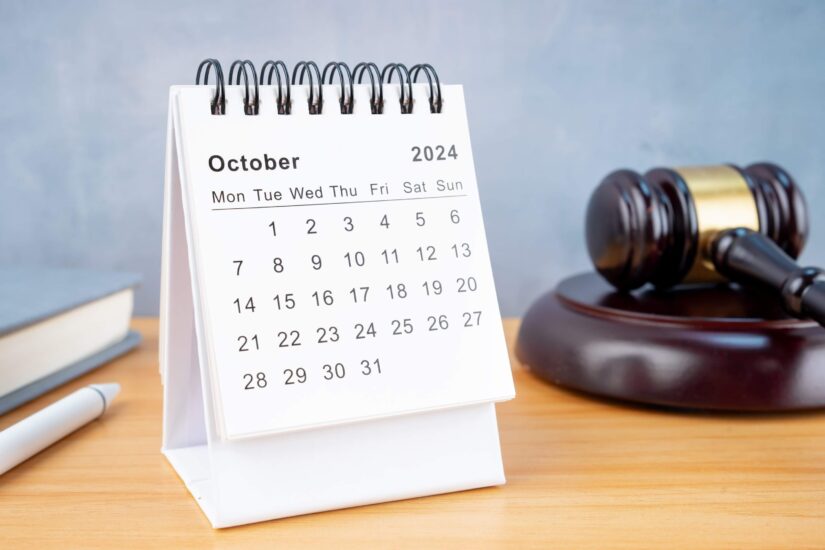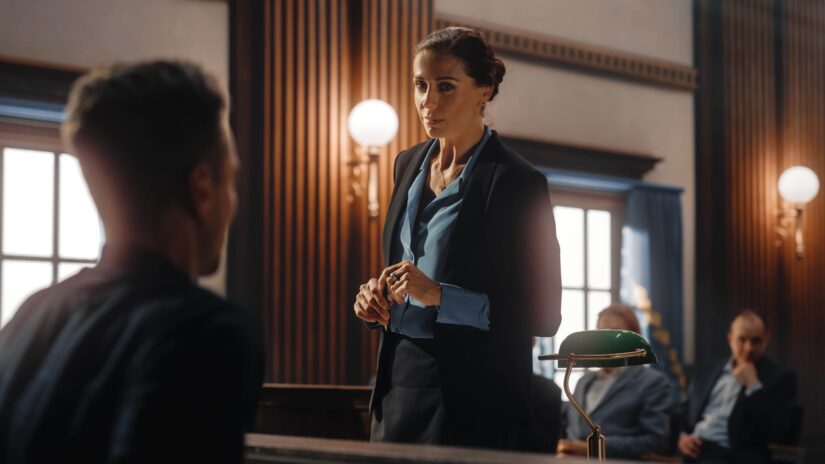How Long Does It Take to Resolve a Criminal Case?
By Jonathan Blecher on October 31, 2024

People facing criminal charges frequently ask about the time span of criminal case proceedings. Unfortunately, there is no set timeline for how long criminal cases will take. Certain factors can impact the length of this process, especially when it comes to felony cases involving more serious and violent crimes.
Jonathan B. Blecher, P.A., is a criminal defense lawyer who represents people arrested for misdemeanors and felonies. With clear guidance and a strong attorney-client relationship, he diligently represents every defendant.
In this informative blog, we address the length of time it takes for most criminal cases, other factors that can impact the duration, and why it’s essential to have a Miami defense attorney fighting for your rights.
Understanding the Process of Criminal Cases
Even with similar charges, every criminal case will be different. Predicting an average timeline for a case is virtually impossible because certain things can arise, even during the legal process, that have the potential to change the outcome. The time it will take to resolve will ultimately depend on your unique case factors and the complexity of the case, though most will go through the following steps:
Initial Arrest
When you are arrested, you will be taken into custody by law enforcement for your alleged crimes. You have the right to know the nature of these charges, as well as the right to remain silent and request a defense attorney. Not all criminal cases begin with an arrest, however, and can begin with a promise to appear (PTA) in court. Low level misdemeanors like petit theft or possession of cannabis might start this way.
Booking on Criminal Charges
Once you are in custody, you are booked on the charges, which starts your criminal case. Whether you are arrested with or without a warrant, you will see a judge within 24 hours, excluding weekends. This will be your first appearance in court, where probable cause, setting a bond, and discussing counsel will occur. Depending on your charges, you can bond out, which is ideal since it allows you and your attorney more time to prepare the defense in your case.
Arraignment and Criminal Trial
Your arraignment will be set typically 21 days after the first appearance and might be rescheduled to the 40th day after arrest in some cases. During this time, the court will formally inform you of your charges. The majority of cases will result in a plea bargain, though it is best to consult your lawyer about whether there is a favorable plea deal available. Plea bargaining may be ideal in certain circumstances.
State attorneys will then decide if they will proceed with the charges. If so, scheduling will occur to set the court date for your criminal trial. For misdemeanor cases, county courts will hear your case, and the state should have undergone the discovery process and made an offer to the defense for a plea deal, if available.
In felony cases, the circuit court will preside, and the discovery phase should be complete. Potential plea bargains may be offered, or a date will be set for your jury trial. Criminal trials, especially for serious charges, tend to take longer due to many other details.
Additionally, pretrial motions may arise, which are requests for the court. These may be at the prosecution’s request or from the defense. A pretrial motion can be called to suppress evidence, compel discovery, or even a motion to dismiss the case.
Timeline for a Criminal Case
How long does it take to resolve these cases? As mentioned, several factors can impact the duration, though cases typically will resolve within 3 months for misdemeanors and 6 months for felonies.
Examining these elements helps us see how some processes may take a few days while others may take over a year.
Factors Influencing Criminal Case Duration
What can make a case take longer or even result in a speedy trial?
Complex Cases
The vast majority of complicated cases will go to trial, while others may be resolved ahead of the court’s schedule for this date. When a case involves serious charges, jury selection may be difficult, and at that point, the jury must believe you are guilty beyond a reasonable doubt to impose a conviction.
Severity of Charges
Defendants in a murder case may also have a lengthier process. The amount of evidence that will need to be reviewed, such as witness testimony and other pieces of evidence, will take time before you go to trial.
Plea Deals
If you accept a plea, you may not even go to trial. Much of this will depend on the nature of your arrest and what the prosecution finds during discovery.
Witnesses and Evidence
Preparing for trial with evidence and witnesses can also mean that your case may take longer to resolve. Family members and witnesses need to be available to testify for or against the defendant in a case.

Resolving Criminal Cases Timeline
Resolving these cases will depend on many different aspects. Whether you plead guilty or the attorneys at your law firm build a strong case against the prosecution, these things can take time.
You should expect to be involved in this process for the next few weeks to several months at a minimum. This is what it generally takes from the time of your arrest, though the more complexities involved, the more likely it will take longer, even up to several years.
The Role of a Criminal Defense Attorney
While it is undoubtedly true that you could let a public defender represent you and defend you against the prosecution before and during trial, it is best to hire legal representation. This worthy investment is a better way to protect your future and your freedom.
During your arrest, you will be read your rights, and you should not settle for a public defender. They are often overloaded with cases, and the one assigned to you may need to gain experience defending against the charges you face.
Hiring a lawyer comes at your expense, but it’s hard to put a price on freedom. When you hire your defense, here is what they will do on your behalf:
Strategic Planning and Case Preparation
At the start of your case, your legal counsel will review the evidence and prepare things for trial. Even if a plea is imminent, they will be combing through every piece of this evidence from the prosecution and looking to poke holes in their case against you.
Negotiations
Your lawyer will also work to negotiate a plea to have you plead guilty to lesser charges. The goal is to protect your rights and your freedoms by minimizing your sentence and time served.
Vigorous Courtroom Defense
Choosing someone with years of trial experience can be an asset as they will defend you in court before the judge. Your legal team’s closing arguments could be what tips the scales of justice in your favor.
When you are faced with criminal charges, your biggest concern shouldn’t be how quickly you can resolve things. It should be how favorably you can fix them. You may have been in the wrong place at the wrong time or mistaken for another person. That’s why it’s vital to hire defense to protect your rights. If you’re in this type of scenario, contact Jonathan B. Blecher, P.A., to learn more about your options.







